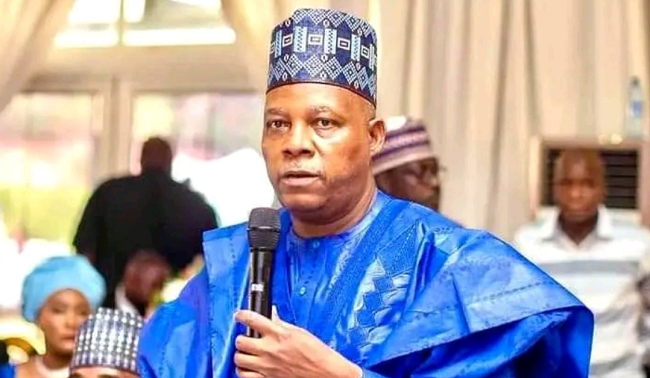Vice President Kashim Shettima on Friday, November 1, 2024, inaugurated the National Flood, Erosion, Drought, and Desertification Management Council (NFEDDMC).

The council is tasked with creating a comprehensive approach to combating environmental and climate-induced disasters.
It will focus on collaborative efforts across government agencies and regions.
The council’s establishment follows recommendations from a disaster management roadmap updated by a committee led by Kogi State Governor, Usman Ododo, under the National Economic Council’s direction.
At the inauguration at the Presidential Villa in Abuja, Shettima noted the need for a unified response to the natural disasters increasingly affecting Nigeria.
“This council will pioneer a collaborative, resource-sharing model to better manage nature-induced disasters,” he stated.
Shettima commended local agencies for accurate weather predictions this year and urged them to continue acquiring advanced technology and expertise to better serve communities.
He emphasised that each agency must be ready to respond quickly to environmental crises.
Expressing confidence in the council’s ability to meet climate challenges, he remarked, “The road ahead is tough, but I believe in our team’s expertise and commitment.
“Together, we can build a more resilient Nigeria”.
Shettima serves as chairman of the council, with members including the governors of Kogi, Bayelsa, Oyo, Ebonyi, Bauchi, and Jigawa states.
Other members include the Ministers of State for Water Resources and Sanitation, Environment, and the Director- General of the Nigeria Hydrological Services Agency.
Also included are the heads of the Nigeria Meteorological Agency, National Water Resources Institute, National Emergency Management Agency, and the National Inland Waterways Authority.
The Niger Delta Development Commission, North East Development Commission, and development partners’ representatives are included.
The council’s duties include advising the federal government on disaster management, developing a national disaster framework, and promoting climate resilience awareness.
By Salisu Sani-Idris
